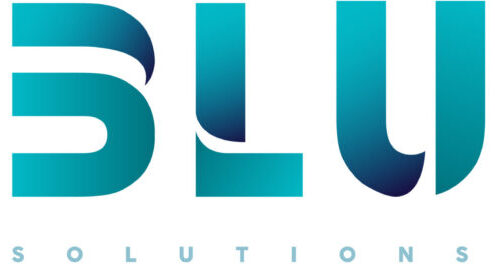
Are you feeling burdened by the amount of tax you pay every year? Many individuals and businesses in South Africa share this sentiment, but there’s a solution to keeping more of your hard-earned money—working with a professional accountant. In a landscape governed by complex tax laws, accountants can be your best asset in minimizing tax liability and ensuring you take advantage of every deduction, credit, and exemption available to you.
Whether you’re a salaried employee, a freelancer, or a business owner, an accountant’s expertise in South African tax laws can significantly enhance your tax efficiency. Accountants meticulously review your financial transactions to identify areas where you can legally reduce your tax obligations. With their in-depth knowledge, they ensure that your tax returns are optimized, ultimately saving you money.
Beyond just preparing your tax returns, accountants can also provide valuable insights into tax planning strategies. These strategies include structuring your finances in a tax-efficient way, maximizing retirement contributions, optimizing business expenses, and taking advantage of investment opportunities that could reduce your tax burden. Partnering with a knowledgeable accountant not only helps during tax season but also equips you with the tools to plan your financial year with efficiency.
The Importance of Maximizing Tax Savings
Maximizing your tax savings isn’t just about reducing the amount you pay during the tax year—it’s about long-term financial planning. When you’re able to legally minimize your tax liability, you can reinvest those savings into other areas, such as growing your business, saving for retirement, or improving your lifestyle. By being proactive with your tax planning, you can better manage your cash flow, forecast future expenses, and make informed financial decisions that have lasting benefits.
Additionally, effective tax planning helps alleviate the stress of dealing with ever-changing tax laws. The South African Revenue Service (SARS) frequently updates tax legislation, and keeping up with these changes can be overwhelming. A well-planned tax strategy not only reduces immediate tax liabilities but also ensures you are compliant with local regulations, avoiding costly penalties and potential audits.
Understanding Tax Deductions and Credits in South Africa
In South Africa, both tax deductions and tax credits can make a significant difference to your tax return, but it’s crucial to understand the distinction between the two. Tax deductions reduce your taxable income, lowering the amount that is subject to tax. For example, if you earn R500,000 a year and claim R50,000 in deductions, you will only pay tax on R450,000.
Tax credits, on the other hand, directly reduce the tax you owe to SARS. For instance, if your tax liability is R30,000 and you qualify for a R5,000 tax credit, your tax bill will be reduced to R25,000. Tax credits are especially beneficial as they provide a direct reduction in the amount of tax payable, which is why understanding and leveraging them is key to maximizing savings.
Navigating the different deductions and credits that apply to your situation—whether related to business expenses, medical aid contributions, or retirement fund savings—can be challenging. This is where accountants play a crucial role. They stay updated on South African tax laws and will ensure you take advantage of every tax-saving opportunity available.
How Accountants Can Help with Tax Planning in South Africa
Tax planning is the process of structuring your financial affairs to optimize your tax position. Accountants use their expertise to help you plan throughout the year, rather than waiting for tax season. This strategic approach can prevent surprises when it comes time to file your returns.
For businesses, an accountant will evaluate your income, expenses, and overall operations to suggest the best ways to reduce taxable income. They may advise you to reinvest profits, claim capital allowances on assets, or take advantage of VAT benefits where applicable. For individuals, they might recommend contributing more to a pension fund or retirement annuity (RA) or utilizing your medical tax credits more effectively.
In South Africa, certain deductions such as contributions to pension funds, RA contributions, and donations to registered public benefit organizations can significantly reduce your tax liability. Accountants ensure that you are making the most of these deductions, providing peace of mind that your tax affairs are in order.
Practical Tips for Maximizing Tax Savings in South Africa
- Keep Detailed Records: To claim deductions, you must have proper documentation. Keep receipts, bank statements, and any other records related to your income and expenses. This will make it easier to identify deductions when tax season comes around.
- Maximize Retirement Contributions: Contributions to South African pension funds and RAs are tax-deductible. The more you contribute, the less taxable income you report, potentially saving you thousands in tax.
- Use Business Deductions Wisely: If you are a business owner, track all allowable expenses, such as vehicle expenses (if used for business), office rent, utilities, and equipment depreciation. A well-documented record of these costs can lead to substantial deductions.
- Don’t Miss Out on Medical Credits: South Africa’s tax system allows for medical tax credits based on contributions to a medical aid scheme, as well as for out-of-pocket medical expenses that exceed a certain threshold.
- Consult an Accountant Regularly: One of the best ways to maximize tax savings is by consulting an accountant on a regular basis. They can provide continuous guidance, ensuring that your finances are always structured in a tax-efficient manner.
Common Tax Deductions for South Africans
- Medical Aid Contributions: SARS offers medical tax credits for contributions to a registered medical aid. You can also claim additional expenses if your medical costs exceed a set percentage of your income.
- Retirement Fund Contributions: Contributions to a pension fund, provident fund, or RA are tax-deductible up to a certain limit. This is one of the most efficient ways to reduce your taxable income.
- Home Office Deduction: If you work from home and have a dedicated office space, you can claim a portion of your home expenses (such as rent or bond interest, electricity, and rates) as a deduction. However, strict conditions apply.
- Donations: Donations to qualifying public benefit organizations (PBOs) are deductible up to 10% of your taxable income. Ensure you receive a Section 18A certificate to claim the deduction.
Why Hiring the Right Accountant is Key
Choosing the right accountant can make a significant difference in your tax savings. A knowledgeable accountant with experience in South African tax laws will ensure your tax affairs are handled efficiently and will advise you on the best strategies for your unique financial situation. Whether you are an individual or a business, having an expert who understands the nuances of SARS regulations is crucial to maximizing your tax savings.
Conclusion: Take Control of Your Tax Savings
Maximizing your tax savings in South Africa requires careful planning, understanding the tax laws, and leveraging the expertise of a professional accountant. Whether through identifying deductions and credits, structuring your finances more efficiently, or ensuring compliance with SARS regulations, an accountant can help you keep more of your money where it belongs—your pocket. Start your journey toward better tax efficiency today by partnering with a trusted accountant.
By taking a proactive approach to tax planning, you’ll not only save on taxes but also lay the groundwork for long-term financial success.

